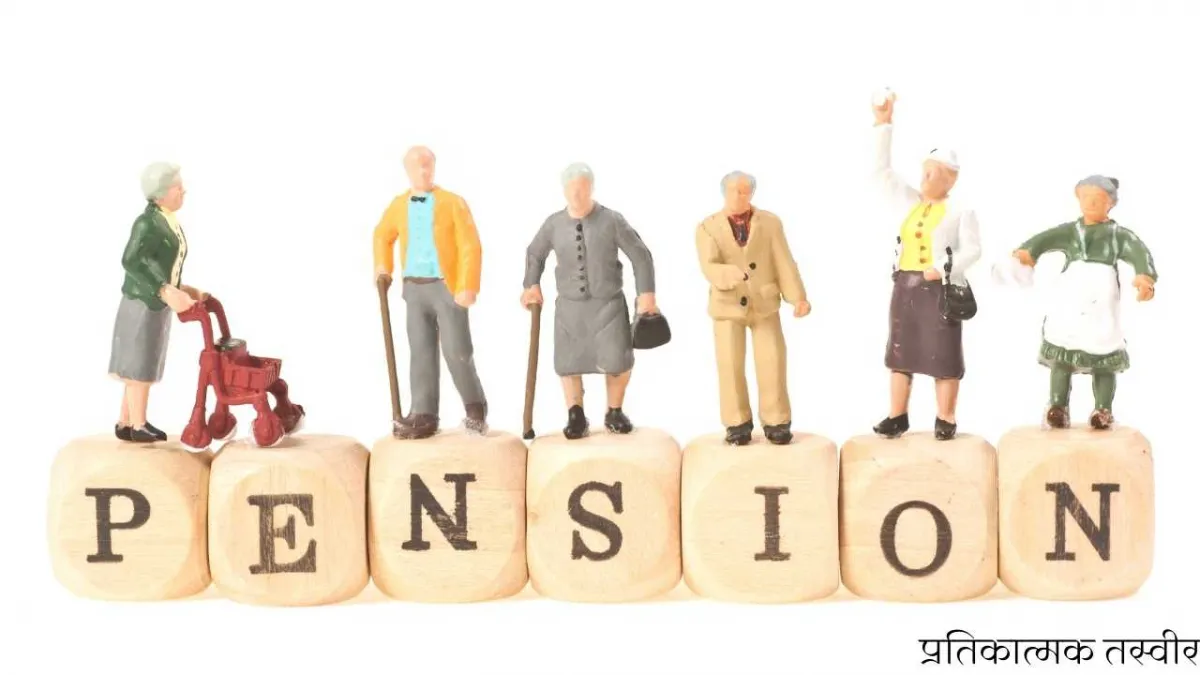Pensioners covered under the Employees’ Provident Fund Organisation (EPFO) pension scheme protested here on Monday, demanding a minimum monthly pension of ₹7,500 among other requests.
The EPS-95 National Struggle Committee (NAC), which is leading a movement to increase the pension for employees and pensioners under the Employees’ Pension Scheme (EPS), stated on Monday that thousands of pensioners protested outside the EPFO headquarters in the national capital in support of their demands.
The pensioners are demanding a basic pension of ₹7,500 per month along with dearness allowance, provision of health facilities, and other requests.
This protest took place at a time when the Central Board of Trustees (CBT) of the Employees’ Provident Fund Organisation was holding a meeting.
Pensioners from Delhi, Haryana, Punjab, Uttar Pradesh, Uttarakhand, Rajasthan, Maharashtra, Karnataka, Bihar, West Bengal, Kerala, Madhya Pradesh, Telangana, and several other states participated in the protest organized by the EPS 95 National Struggle Committee.
The committee’s president stated that the Supreme Court has already delivered its verdict on this matter. Yet, justice remains out of reach for millions of retired employees.
He said, “Those who served the nation throughout their lives are struggling to make ends meet today. We appeal to the Prime Minister to intervene and restore dignity and fairness in the pension system.”
The committee has warned that if their demands are ignored, the movement will be intensified, and protests will also be held in state capitals and regional EPFO offices in the coming months.
Employees’ Provident Fund Organisation
The Employees’ Provident Fund Organisation (EPFO) is India’s statutory retirement fund body, established in 1952 under the Employees’ Provident Funds and Miscellaneous Provisions Act. It provides financial security to millions of workers in the organized sector by managing provident fund, pension, and insurance schemes. As one of the world’s largest social security organizations, it plays a crucial role in securing the post-retirement life of employees.
EPS-95 National Struggle Committee
The EPS-95 National Struggle Committee is not a physical place or cultural site, but a major social movement and advocacy group in India. It was formed by pensioners covered under the Employees’ Pension Scheme (EPS-95) of 1995 to demand higher and more equitable pensions. The committee’s history is defined by organizing nationwide protests and legal challenges to seek reforms from the Employees’ Provident Fund Organisation (EPFO).
Employees’ Pension Scheme
The Employees’ Pension Scheme (EPS) is a social security program in India established by the Employees’ Provident Funds and Miscellaneous Provisions Act of 1952. It is a defined contribution-benefit scheme designed to provide financial stability and a regular pension to employees in the organized sector upon their retirement. The scheme is funded by contributions from both employers and employees, managed by the Employees’ Provident Fund Organisation (EPFO).
EPFO headquarters
The Employees’ Provident Fund Organisation (EPFO) headquarters is located in New Delhi, India. Established in 1951, it is the administrative body responsible for managing India’s mandatory provident fund, pension, and insurance schemes for organized sector workers. It operates under the Ministry of Labour and Employment, Government of India.
Central Board of Trustees
The Central Board of Trustees is not a physical place or cultural site, but a governing body. It is best known for managing the Employees’ Provident Fund Organisation (EPFO) in India, which was established in 1952 to provide financial security to the country’s workforce through provident fund, pension, and insurance schemes.
Supreme Court
The Supreme Court is the highest judicial body in the United States, established in 1789 by Article III of the U.S. Constitution. It is responsible for interpreting the Constitution and has the ultimate authority over all laws within the United States, most notably through its power of judicial review established by the 1803 case *Marbury v. Madison*.
Prime Minister
“Prime Minister” is not a specific place or cultural site, but a political office. The role of a head of government, often called Prime Minister, originated in the United Kingdom, with Sir Robert Walpole widely considered the first Prime Minister in the 1720s. This system of parliamentary leadership has since been adopted by many countries around the world.






